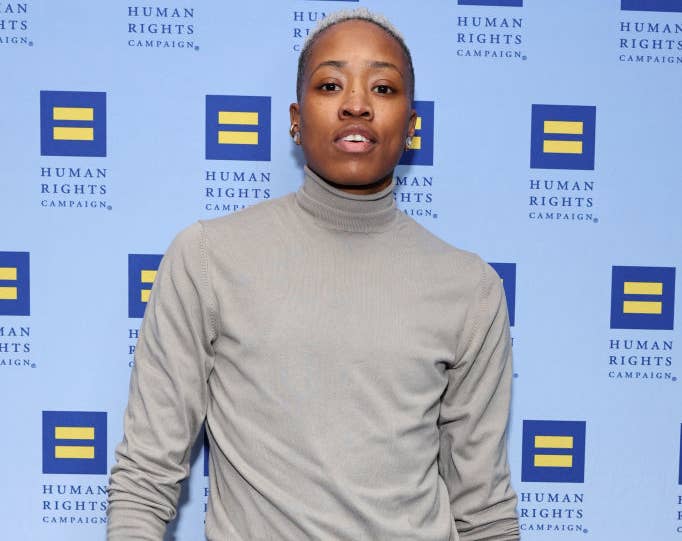
When it comes to dating shows, Netflix has cemented itself as one of the leading competitors for contestants vying for a shot at love. They put themselves in a league of their own when they introduced The Ultimatum: Queer Love, a spin-off to their original series, only this time with a focus on queer and non-binary couples.
Like any series, we were introduced to a string of interesting characters, but none of them captured the attention and hearts of viewers quite like Mal Wright. From her natural charm that put everyone at ease to her level of emotional intelligence that made every conversation seem elevated, Mal instantly became a fan favorite.
For BuzzFeed's Black, Out & Proud series, I sat down with Mal to discuss the impact of the show, her new role at Netflix, what dating's been like with this newfound fame, and finding comfortability in queerness.
Editor's Note: This interview has been edited for length and clarity,
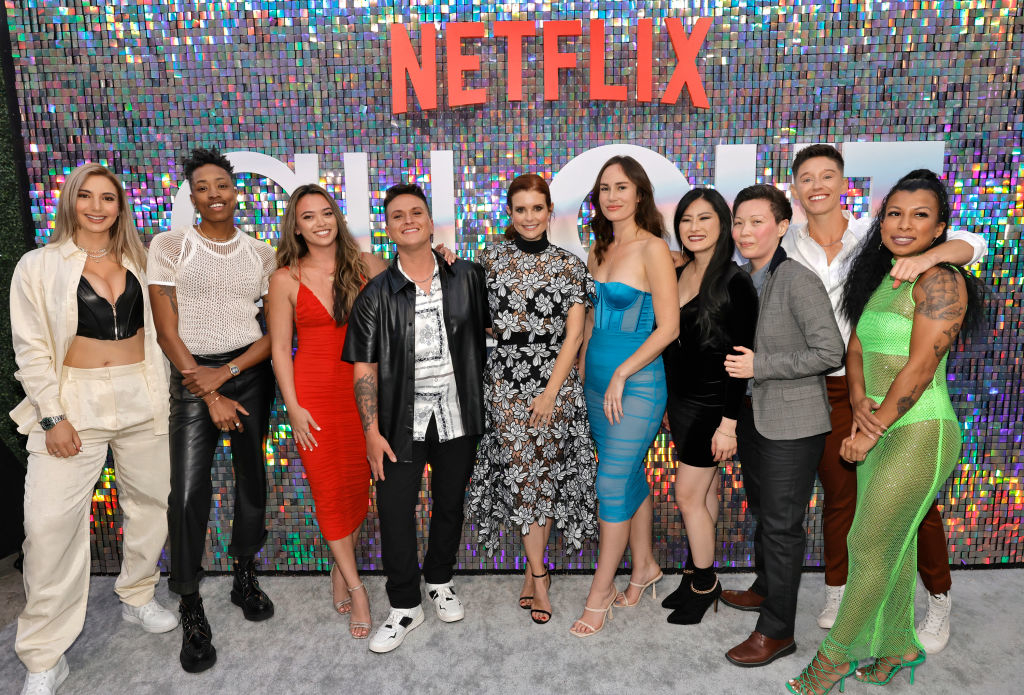
BUZZFEED: Less than a year ago, the world was introduced to you on The Ultimatum: Queer Love and you immediately became a fan favorite. What was your stance on ultimatums going into this experiment versus now, after you’ve had time to reflect on the experience?
Mal Wright: I think my stance on ultimatums are still the same. I don't like them [laughs]. However, they work. We give them in all types of scenarios in life, be it really big or small, or joking or not. They're a very normal part of life.
Being part of a queer-focused dating show was a pretty big deal. Was there ever a moment with fans or friends that allowed you to see the impact the show had on people?
Going in, I didn't fully understand the magnitude, but now I'm realizing more of the impact that it's made. I just spoke at a Human Rights Conference about harnessing joy and joy as a form of resilience. I would have never thought being cast for The Ultimatum or even filming would lead to me speaking on a panel for the Human Rights Campaign, or being featured in Ebony magazine, or GQ magazine, I couldn't have seen it coming. I couldn't have planned that, so I'm realizing the impact. I was in a really wonderful, stable corporate position. I thought I was just climbing that corporate ladder — that's where I saw myself or, at least, that's what I guess I limited myself to.
Has this experience altered the way you approach relationships at all?
Oh, sure! You owe it to yourself to choose exactly what you want and to go after exactly what you want. You are your own compass. You have this one life to live, so you owe it to yourself to choose exactly what you want. I think a lot of times we're taught by family, or whoever, that we had to either emulate what we saw or listen to people's advice about what's best for us. Before, I was dating under the guise of my parents, you know? I thought longevity was a benchmark for me. And I think it still is, but the reason I want longevity has changed. I don't want to be in a long-term relationship just to be in one. Therefore, I won't tolerate any type of disrespect anymore. I'm not staying with the person just for the sake of staying with them anymore.
My parents have been together for 50+ years. I don't know, if they had to do it today, that they'd still be together for those 50 years, because the reasons that they stayed together are very different than the reasons I'm staying with somebody. I think that's the example that I had, so that's what I've tried to practice. What ended up happening is, I ended up betraying myself, and that's a tougher pill to swallow. It's less about the person, right? People are going to be people. We might have just been a bad match. That doesn't make her a bad person, but betraying yourself to try to make that match happen is a wild journey.
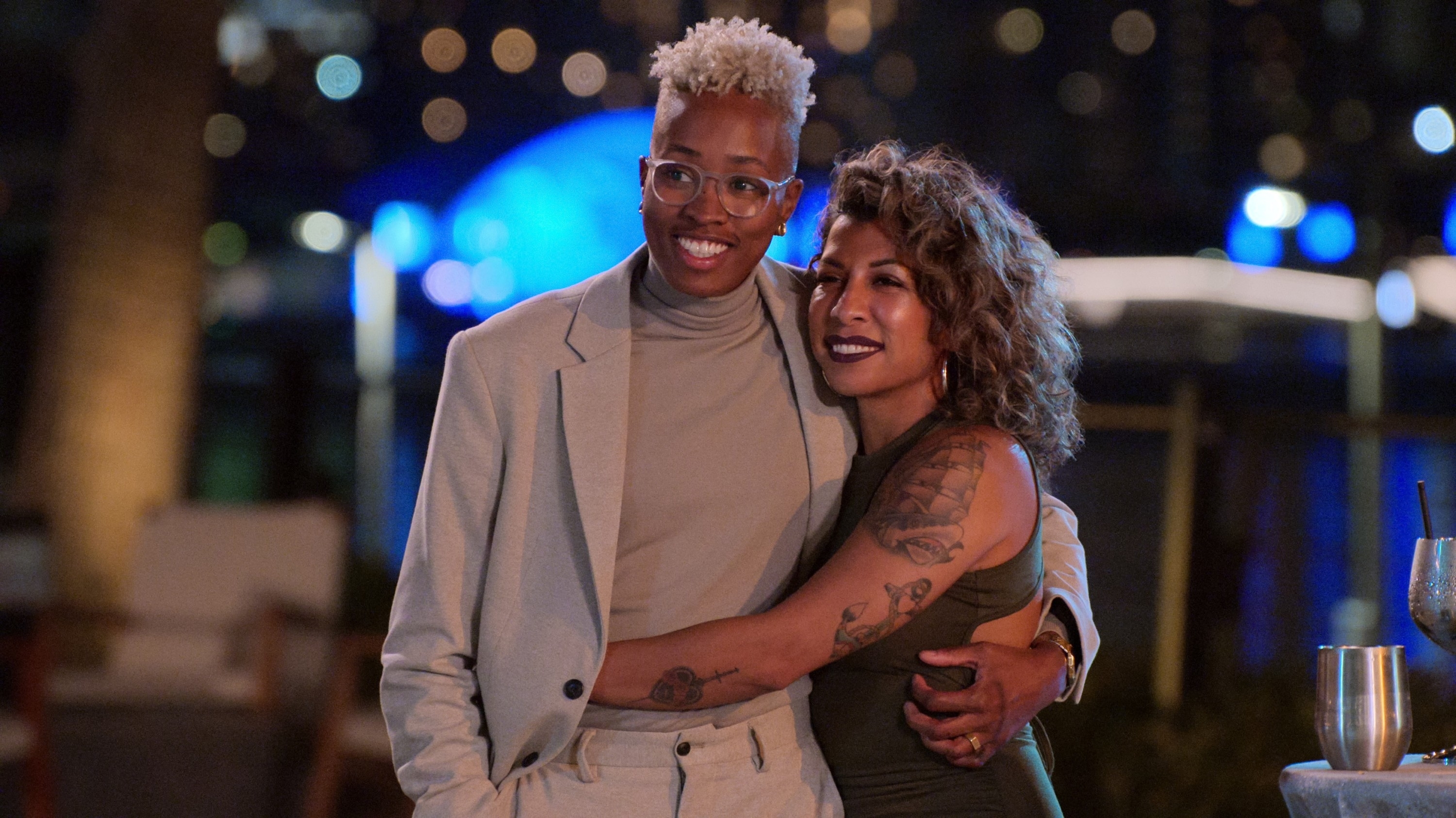
And then getting back to yourself. It's even more of a journey.
Oh my goodness, getting back to yourself is so difficult, because now you're like, do I even trust my own voice? Do I even make good decisions? Whoa, who am I?
That is so true! With the rise of dating shows using challenges and games to test the strength of someone’s love, as well as the constant discourse about relationships on social media, what are your views on dating in current society?
Something important to me now is privacy. I think privacy has always been important to me, but I find value in remaining private now that I am considered a public figure. I don't leave my relationship up for critique by anybody but myself. In my experience as a Black queer woman, there is a different type of critique that happens in our existence, and in our relationships, and how we choose, and with who we choose. I'd just rather leave that to me. My relationship is no longer for public consumption, at least not in that type of way. My relationship is a piece of my own healing. It's my own peace — not for anybody else's entertainment. I can take what I've learned, and what I've been through, and I can — I don't know that I'm the person to give advice — highlight things now. I can give a little bit of guidance based off my experience and ask the right questions to people to have them thinking different. I think keeping things private also made dating really wonderful, too, and, dare I say, better than I've ever experienced it before. Dating is really, really wonderful now.
It's important that I'm with a person who also has the same ideals and who also values our privacy. We don't want to be an influencer couple, that's just not us. Love those that are out there, but that's just not our thing. We're public facing, meaning if you happen to see us in public, that's different. There's no secrecy...just an element of privacy.
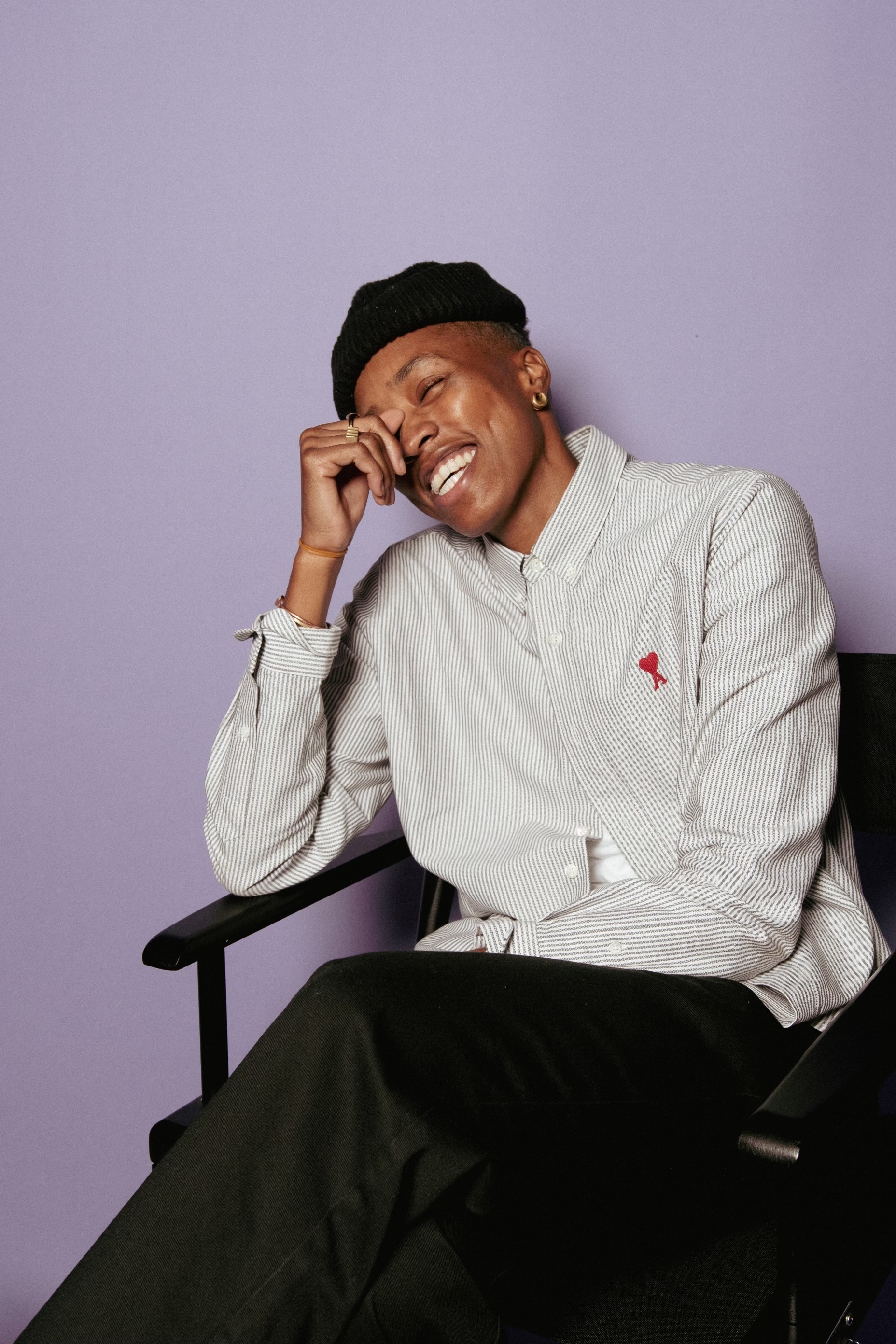
One thing that also caught people’s attention after watching the show was your sense of style. Has your queerness influenced your style throughout the years and what’s one of the biggest realizations you’ve made when it comes to fashion?
I think the beauty of queerness is so expansive. It absolves the binary. Just because I am she/her does not mean I then have to wear stereotypical she/her clothing. I think queerness has been freeing in that sense. Because I'm queer, people aren't surprised at what I put on or what I wear; they're not surprised when I bounce back and forth between traditional men's pants and a woman's top or, vice versa. I'm still she/her. There are all these ways that I can exist that are really fluid and free, and I think that's under the guise of queerness or under the umbrella of queerness. That's where I can have my freedom of expression. It can change and it can evolve. It's just so expansive. I can do whatever I want within it. I just go for what I think looks good and what I feel good in. I'm influenced by both men and women.
LGBTQ+ identities are often linked to how someone presents or appears on the outside, and fashion definitely plays into that. At times it can also pigeonhole people into certain roles (like masc, femme) or stereotypes, thus limiting their ability to express themselves. Have you ever felt like you had to play a certain role in your relationships because of how you present yourself? If so, has that mentality changed for you?
Yeah, absolutely! That's what's so beautiful about the term queer and the umbrella of queerness, because I can recall in earlier days when I just identifed as a lesbian. I recall earlier days of being a lesbian and the subcategory of being a stud, which is under the lesbian umbrella. That felt too rigid for me, at the time. I don't know if the term has evolved more, but for me, it was absolutely a Black masculine-presenting person who's not trans. A stud is a Black she/her masc-presenting lesbian, who is not only masculine in presentation, but also one who adopts rules that traditional, straight men would have. I love the culture of some of it. I love how we interact with each other, and I love that it feels like a sisterhood, brotherhood, or whatever you want to call that...the camaraderie...but it still doesn't align with me completely, because I still feel very feminine. Whatever I thought femininity meant at that time, it felt different than the expression of some of my friends, so that had to evolve for me. I've always been on the quest to find what fits me best. I think, at the end of it all, we all just want belonging somewhere, and we want to feel a sense of home in whatever group we find ourselves in. I think queerness is just more — it's more all encompassing. Under the guise of queerness, I can have a straight male friend and we both maybe like the same things in the bedroom. Or maybe we like to wear similar clothing. We shop at the same places. Maybe my queer male friend, maybe we just have more in common and that wouldn't have happened under different identities. I just think queerness is just more all encompassing...more inclusive.
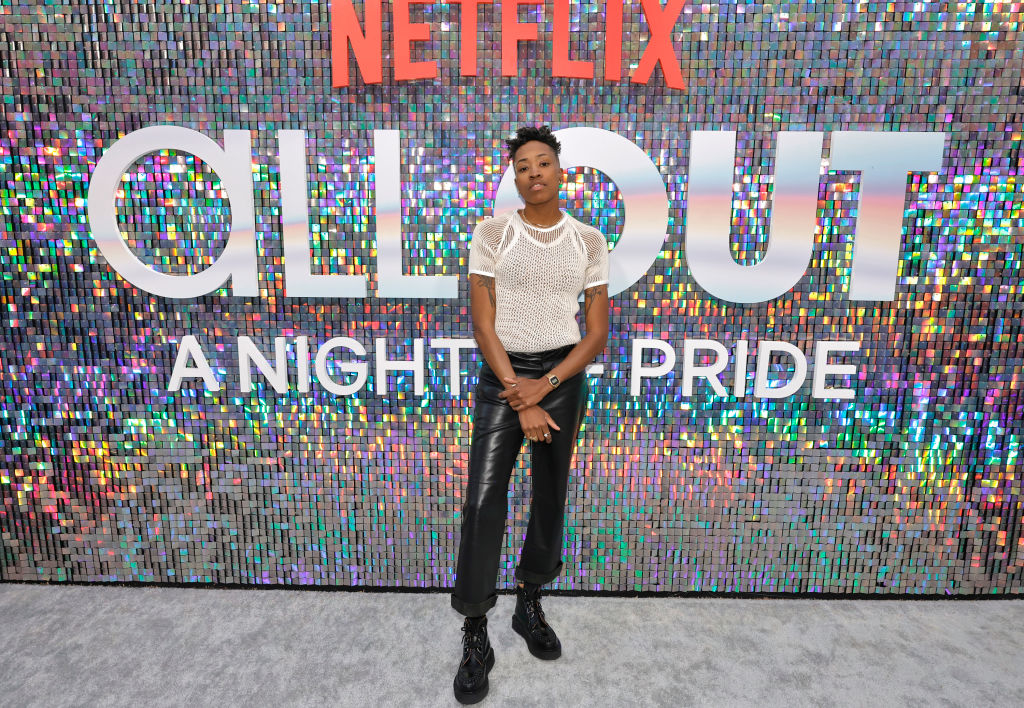
Yes, I hope we get to a time where people just allow each other to change and evolve. Stop expecting us to be one thing. That message also goes to people in our community as well. You're not limited to what people say you're supposed to be or do.
Right, there's no right code that's being broken. It sucks, because sometimes what I think it does is it kicks people out of the community, by making people feel like they have to conform. That's just not what I'm about. I want everybody to feel welcome. I want us to have the same ideals about humanity.
Speaking of representation, growing up, was there a character on TV or film that made you feel seen?
As far as how they physically presented themselves to the world, I would say Aaliyah. I loved her tomboy era — loved the boxers hanging out with the open shirt and the crop top. She ate it up. I loved it! Left Eye — God bless them both — loved her style, too. These weren't characters on TV, but I love how my brother dressed, as well as my aunt. My aunt was really pivotal in my identity also — a straight, cis-het Black Jamaican woman, 4'11" tiny officer in the military, very strong...she introduced me to Erykah Badu. There's this combination of people and things that I've seen that made different parts of me feel seen. They opened my eyes to what could be.
When it comes to characters, Queen Latifah in Set It Off. I was like, "Oh, wait a minute." She's Gotta Have It had me in a chokehold. I would sneak and watch that movie. I remember we got a late fee, because I rented that movie. I don't even know how I found out about it. I don't know how it came across my radar, but it did. I remember we rented it, or I rented it, and we got so many late fees, because I couldn't give it up. My mom was like, "What the hell! What are you watching? Why do you like it so much?" Spike Lee was amazing. I thought the film was Earth-shattering.
What queer tropes are you tired of seeing on-screen? And what things would you like to see more of when it comes to queer stories?
I'm tired of seeing heteronormativity in our relationships, there's a traditional boy and there's a girl in the relationship. It exists, but I don't need to see any more of it. If that's your setup, great. Love that for you. I want to see other examples. Mainly for the youth, for the people coming up, I think they need other examples of how they can exist also. I want to see more nonbinary action between people — nonbinary on all sides of the gender spectrum. I want to see relationships. Under the guise of heteronormativity, I'd love to see transness enter the picture, but in a way that keeps them safe. I would love to see more men talking about their admiration for women across the board, be it an AFAB (assigned female at birth) woman or not, just women. I would love to see more men courageously just be like, "I find her attractive. I like her."
I'd like to see the consumer stop being so nosy, because it's not curiosity, it's people being nosy about other people's reproductive organs. It's their own business, and they don't have to explain that to you. Curiosity is different. A lot of people are just nosy and entitled. I'd like to see more educational stuff on asexuality in the mainstream and have resources be readily available for people. I'd also like more highlights on the nuances of existence, so they don't have to be so nuanced anymore. I think we conflate nuance with normalcy. Let's just highlight how they can coexist. Let's shine a light on how other people are living so we have more knowledge about humanity and spaces that we can fit in. I'd just like to see more diversity in how people live.
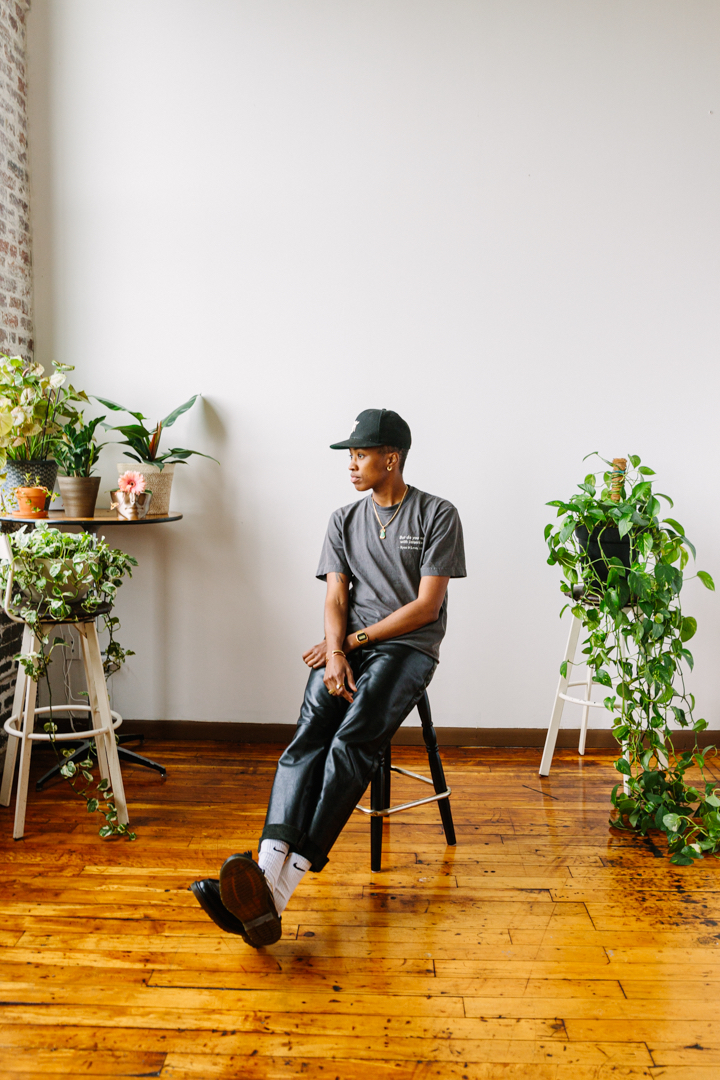
What has been the biggest lesson you’ve learned about yourself while living your life so authentically, both in your private life and publicly?
The more I thought I knew, the more I realize I don't know. I'm deeply committed to being the most true and the best version of myself. I'm also learning that a lot of people feel this way. I'm not alone in this feeling. I'm learning more about my own superpower and what that is. It is enough to just exist the way that I do and live that very loud. I'm okay with expressing what I'm curious about, asking questions, and admitting that I actually don't know something. I seek that knowledge from the people around me or the accurate resources. I'm okay if that ruffles feathers sometimes. I think a lot of people think that I'm, like, all-knowing. I'm not. I'm still learning, I'm still evolving, and I want to share that with people.
Are there any projects we should keep an eye out for?
I'm on the casting production team for The Ultimatum: Queer Love Season 2. It's interesting how that came about, because I was on the cast and now I'm casting for it — full circle. I'm not the decision maker, but at the very least, I can bring things to the table and be like, "We might need to change this up a little bit." Or "Here are some questions we need to be asking." There are also some speaking engagements that I have coming up. There will be other things that I will be present on. I have my own creative projects coming, be it jewelry, or other ways to just express myself...those projects are underway.
Oh I started a party collective (Let's Have a Kiki), which is like a music collective. It's really fun and we're about to go international with that. It's very cool and it's with my favorite DJs (Quiana Parks and Adair), and we source some of our favorite DJs that really understand music and fusion and what that looks like. It's not really a club scene, but more of a listening experience. It's queer-centered. Although it's for everybody, just know that we keep queer people safe. We did our first one in Austin for Afro Tech, and the party sold out. It was an amazing experience. It was so, so great. We've just been traveling around. We hit Seattle, we're hitting Amsterdam in August, I know we got something in New York coming, too, and we're about to hit Detroit. It's just a beautiful mashup of people, because we're all aligned. We're actually all friends, so it's just a really wonderful thing.
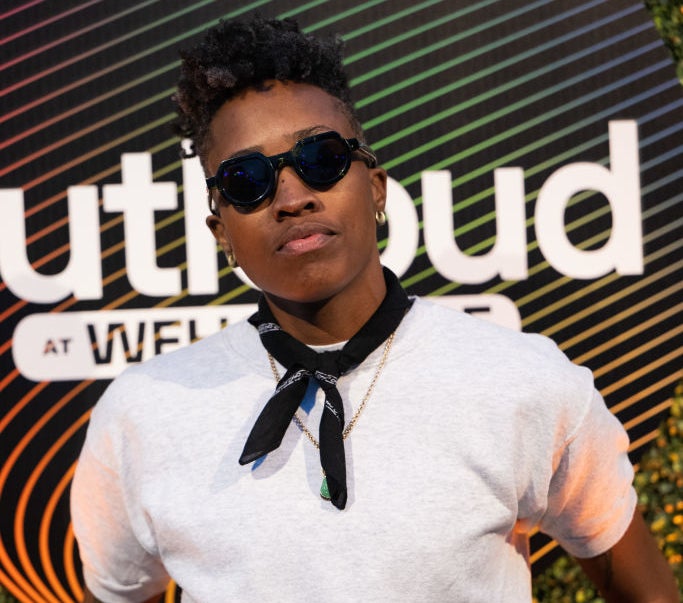
That sounds beautiful! I hope to make it out to one of your parties one day. Okay, I want to get into a few questions about your experience as a Black queer woman, both in life and in your career. Who was your first queer crush?
I think my first queer crush was Nia Long. Back in the day, Phylicia Rashad. Oh and Topanga! I had a little thing for Topanga. Who didn't? She was, like, spicy in a different way, and I was like, "Wait a minute. What am I feeling for this girl?"
Who was your first Black queer icon?
I would probably say James Baldwin, but also Queen Latifah.
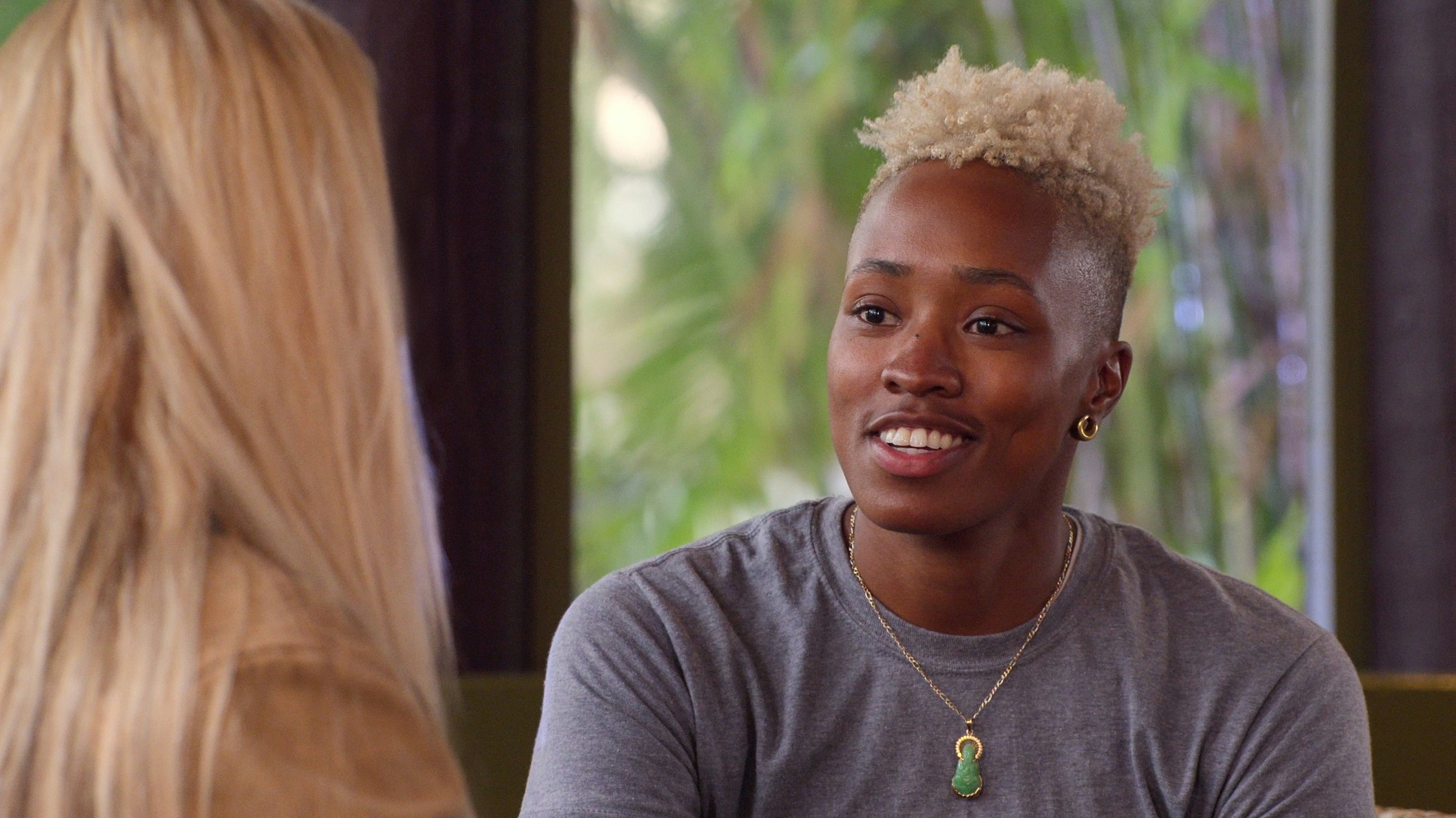
What advice would you give young, Black queer people?
Keep being exactly who you are and give yourself permission to change as often as you need to. You can be 50,000 different people as much as you want. The people that really bang with you for real, the people that really love you, will keep changing with you, and they won't hold it against you. They're not going to hold you to that last person that you said you were.
What has been your proudest moment being Black and queer?
Finally being in a body where my external presentation and my internal presentation align. My parents are really proud of that — not just proud, but they really like me, they really like who I am. They're just like, "We don't necessarily get it. We're not trying to let that influence us in any way, but we really like you for who you are." They're actually fans of my humanhood now. It took a long time to get to where we're at, to hear both of them say stuff like, "You're my best friend," that's really cool. It wasn't always like that. I recognize that it's a privilege to be able to say that because a lot of our parents are not like that. It's a lifelong battle. And my parents are religious, so for them to be able to be like, "Yeah, you live like this. We don't, but we still love you. We believe God loves you, too. You're our girl. You're good with us and your friends are good with us, too." That's a cool feeling.
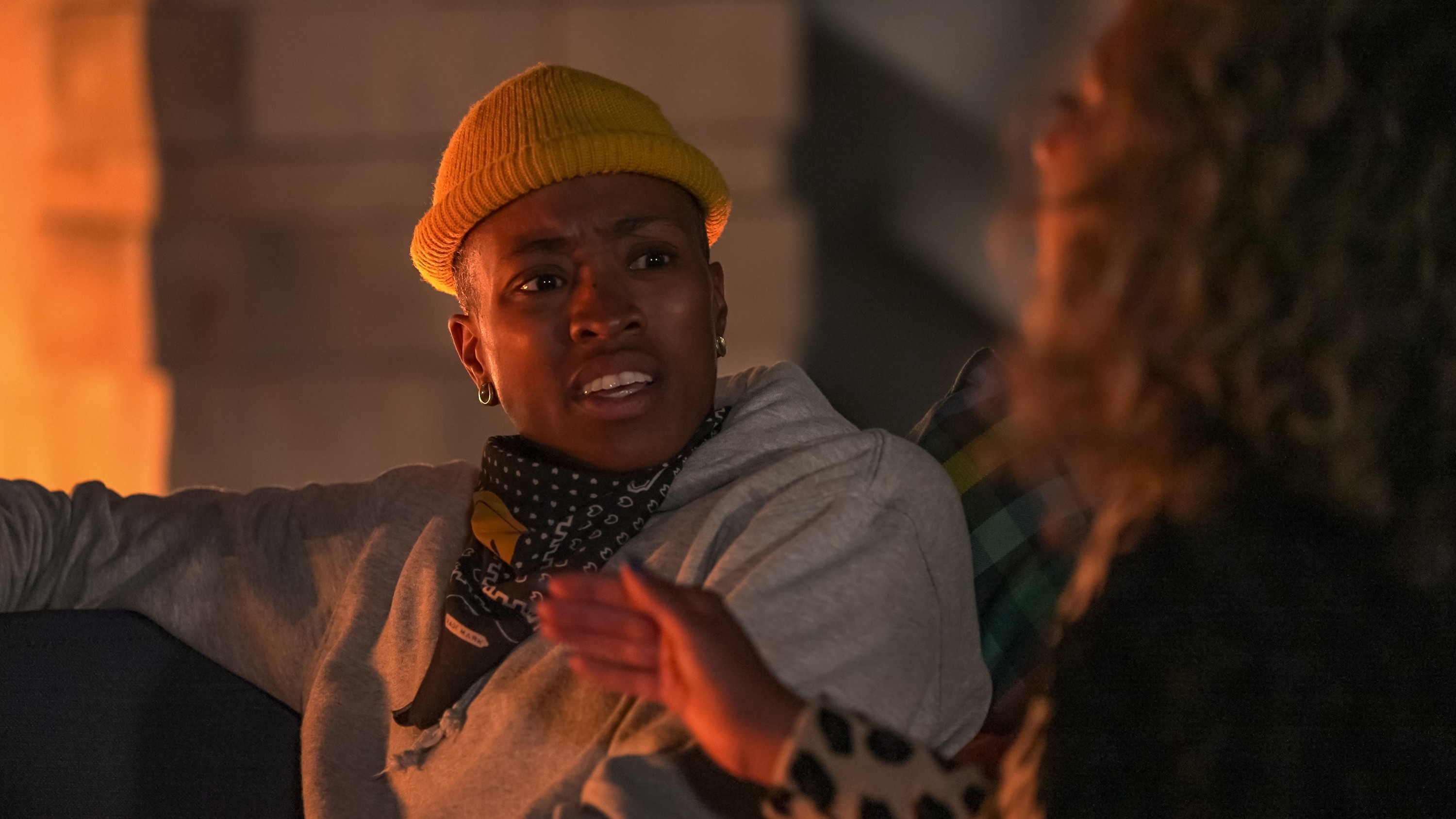
When did you realize your sexuality wasn't a phase?
I've always had questions about my sexuality since I was, like, 4 or 5. I've always felt queer, and I have language for it now as I think back to like, "Oh, that's why I felt those ways." And I didn't have a bad experience with men or anything like that. Since I can remember I've always felt different or other. I think in high school, though, when I had my first sexual experience with a woman, I was like, "Oh, I don't think this is a phase. I'm going to try this boy thing, because you're supposed to do that. And boys are cute, right? They're fun. We have things in common and we play sports together. So maybe that's what you're supposed to feel: camaraderie, brotherhood." But I've always felt this way about women. So, I guess high school is when I was like, "Yeah, no, this isn't a phase."
What does Black history mean to you as someone Black and queer?
I think we are a part of writing history. I also think it means honoring the people that are Black and queer that set the path for us before. I'd be remiss if I didn't mention people like Audre Lorde, James Baldwin, the writing of Toni Morrison, or Marsha P. Johnson, as I also write pieces of history myself. There are so many names of people that I think about that have influenced me or impacted me and their queerness in various ways and just in their existence — friends, people in mainstream media now that are Black and queer, etc. I think we're writing it as we speak. We're all actively a part of Black queer history. And with the internet now, there are so many influencers that are Black and queer. I, along with other people, admire them, what they're doing, and how they're doing it. Queerness is ever-expanding. I think Black queer history is also ever-expanding.
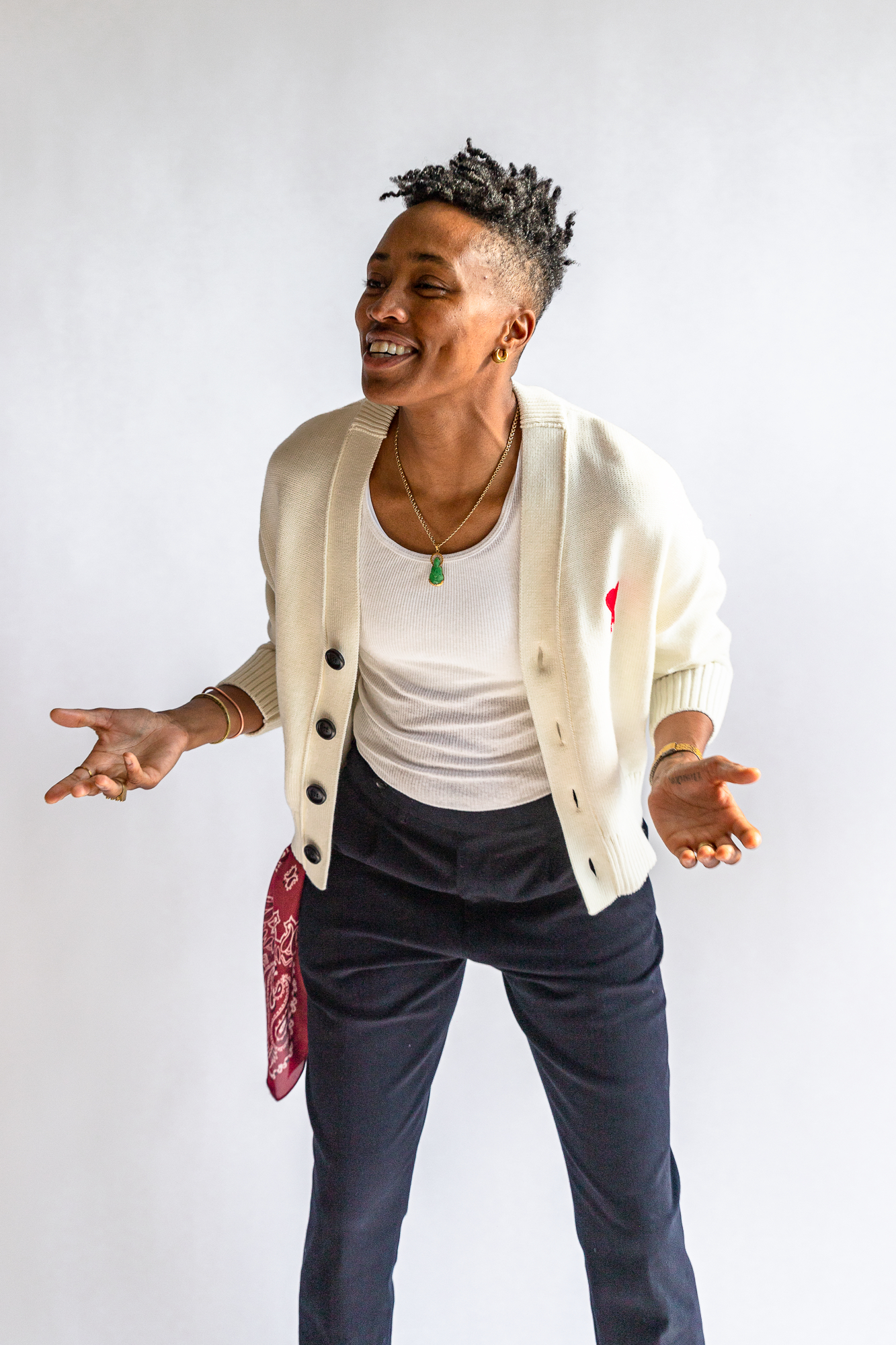
I agree. And you touched on just how I feel. I feel like people don't even realize just by existing, they're making history. And they're inspiring people literally just by existing. So I am with you on that. How much progress do you think we've made as Black LGBTQ+ people?
In the grand scheme of things, like since the dawn of time, I can consciously acknowledge, that we've made lightyears of progress. But under the guise of patriarchy, capitalism, and whiteness, how much progress can we make with those shackles? As much as we can. We've made as much progress as we can.
What hopes do you have for queer representation in the future?
I hope that we're able to exist without other people policing everything that we do or making it seem like we can exist, but only enough for the audience to tolerate...like queer, but not too queer. Be queer and stay that version of queer for the rest of your days. I hope that we can just exist, period.
I couldn't have said it better! Thank you for chatting with me, Mal!
You can read more Black, Out & Proud interviews here.


